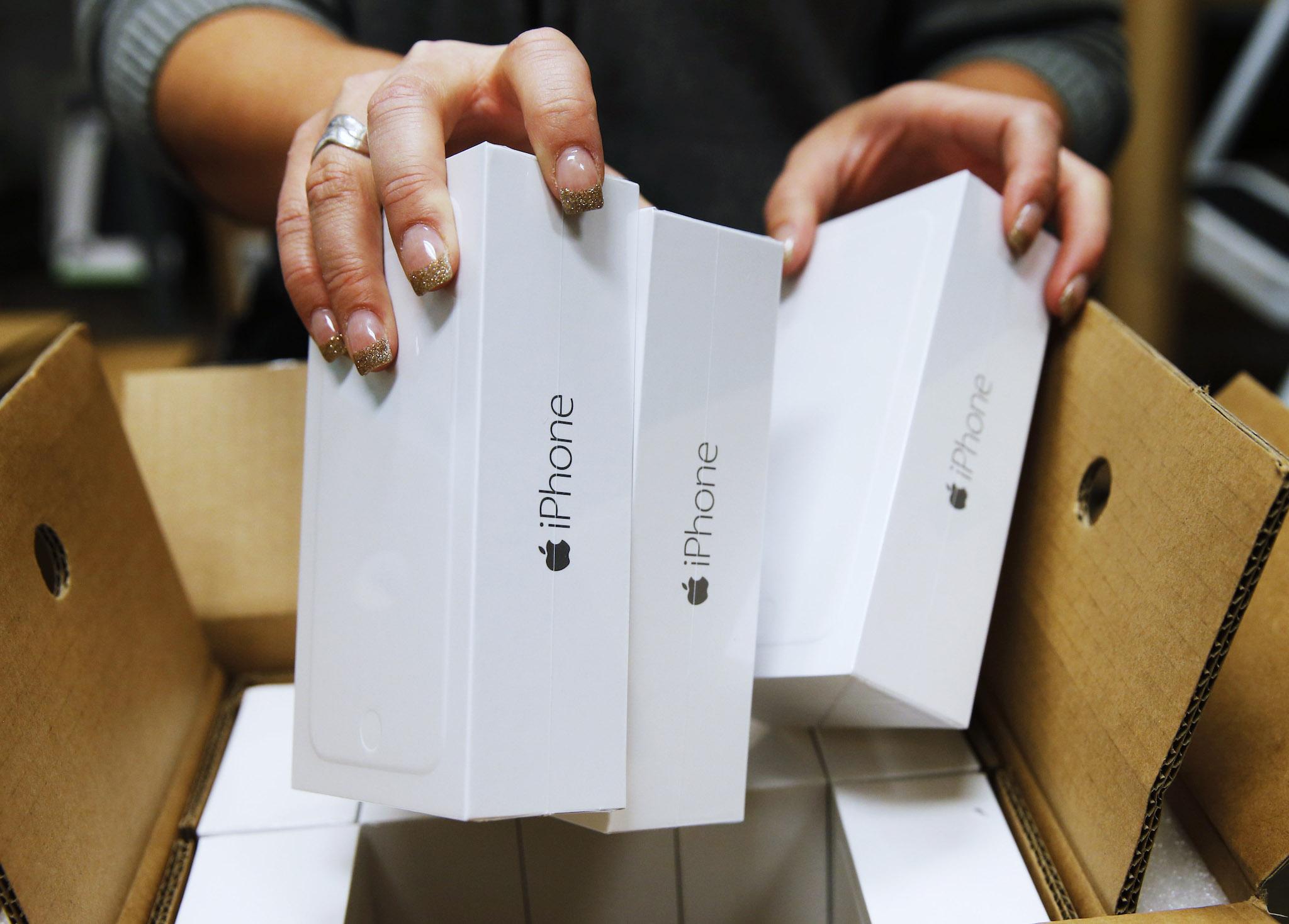Apple faces record Irish tax bill with EU set to rule on 'sweetheart' deal
Probe into tech firm’s tax arrangements with Irish government expected to spark international dispute

Your support helps us to tell the story
From reproductive rights to climate change to Big Tech, The Independent is on the ground when the story is developing. Whether it's investigating the financials of Elon Musk's pro-Trump PAC or producing our latest documentary, 'The A Word', which shines a light on the American women fighting for reproductive rights, we know how important it is to parse out the facts from the messaging.
At such a critical moment in US history, we need reporters on the ground. Your donation allows us to keep sending journalists to speak to both sides of the story.
The Independent is trusted by Americans across the entire political spectrum. And unlike many other quality news outlets, we choose not to lock Americans out of our reporting and analysis with paywalls. We believe quality journalism should be available to everyone, paid for by those who can afford it.
Your support makes all the difference.Apple faces having to pay billions of euros in back taxes to Ireland if a probe by the European Commission declares the company’s tax arrangements with the Irish government are illegal.
The final ruling is expected today and if the commission’s position is upheld, the record repayment sum is expected to spark one of the world’s largest tax battles along with an international dispute over the commission’s role and authority.
Apple’s tax arrangements in Ireland are based on an agreement drawn up in 1991, when Apple was struggling against the PC boom, and another in 2007, which allowed the company to pay just four per cent tax on almost $200bn of profits over a 10 year period.
According to EU law, such tax benefits for a selected company amount to illegal state aid.
Apple and the Irish government are likely to appeal the ruling.
Around 90 per cent of Apple’s foreign profits are earned by Irish subsidiaries, the Financial Times reports, and the company’s total $187bn in cash it holds in Ireland is the largest foreign cash pile held by any US multinational.
The European Commission says the tax arrangements gave Apple an unfair advantage that distorted competition.
No figure has yet been given as to how much money Apple may be forced to pay in back taxes, but EU competition commissioner Margrethe Vestager is expected to give an estimate on Tuesday.
Analysts have provided a range of estimates. According to JPMorgan’s Rod Hall, a “worst-case scenario” could mean Apple may face a $19bn bill.
Comparable Rulings
A precedent for such repayments has already been set (albeit on a smaller scale) after the commission ordered the Netherlands to claw back €30m (£25.6m) from Starbucks last year, and Luxembourg was ordered to recover a similar sum from car manufacturer Fiat as the commission cracked down on so-called ‘sweetheart’ tax deals.
In January, The commission ordered Belgium to recover about 700 million euros in what it called illegal tax breaks from at least 35 companies, including Anheuser-Busch InBev NV and BP Plc, according to Bloomberg.
There are also ongoing investigations into Luxembourg’s tax arrangements with McDonalds and Amazon.com.
US response
The US government has strongly criticised the probes into American multinational firms by the EU.
The US Treasury Department said the action by the European Commission along with the penalties it was issuing to firms were “deeply troubling”, and accused the commission of becoming a “supra-national tax authority”, the BBC reports.
But the commission said there was “no bias against US companies” in its investigations and said it was trying to ensure EU law was applied equally to all firms operating in Europe.
Apple previously said it did not have a “special tax deal with the Irish government”.
“Apple is subject to the same tax laws as scores of other international companies doing business in Ireland,” the company said.
The US Treasury Department has pushed back hard against the state-aid probes, most recently with an unusual white paper that said the Brussels-backed commission had overextended its legal authority.
When the investigation was announced, Ireland’s Department of Finance said it was “confident that there is no state aid rule breach in this case and we will defend all aspects vigorously.”
Why Ireland?
Ireland has a relatively low corporation tax rate of 12.5 per cent of profits, compared to the UK’s rate of 20 per cent and the US’s 38.9 per cent for the largest companies.
This means the country has become an attractive place for US companies to place their subsidiaries, with more than 700 US companies operating there and employing 140,000 people.
But Apple has paid far less than even the 12.5 per cent rate in Ireland, according to a 2013 report by the Senate Permanent Subcommittee on Investigations.
The report found the company was able to cut its global tax bill by “negotiating a tax rate of less than 2 per cent with the government of Ireland - significantly lower” than Ireland’s statutory rate.
Join our commenting forum
Join thought-provoking conversations, follow other Independent readers and see their replies
Comments